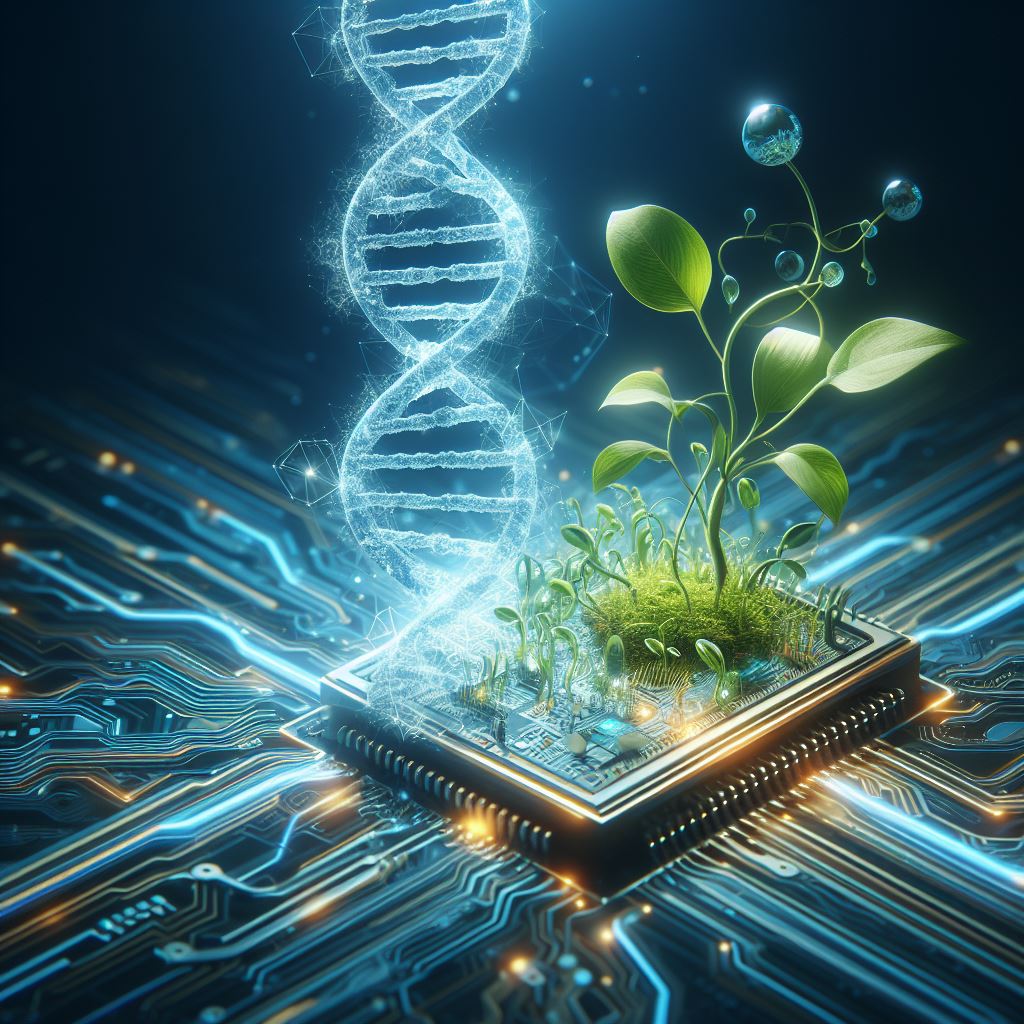Revealing the Power: A Study on Biotechnology
 omisha singh
omisha singhBiotechnology has brought about a powerful convergence of biology and engineering, revolutionizing our understanding and manipulation of living systems. Its impact extends far beyond laboratories, transforming medicine, agriculture, industry, and the environment. This report delves into the fascinating world of biotechnology, exploring its historical milestones, diverse applications, ethical considerations, and promising future trends.
Historical Milestones:
The roots of biotechnology can be traced back to ancient practices like fermentation and selective breeding. However, the modern era began in the 19th century with Louis Pasteur's ground-breaking work on microorganisms. The 20th century witnessed significant breakthroughs, including the discovery of DNA structure by Watson and Crick, the birth of genetic engineering, and the development of recombinant DNA technology. These milestones laid the foundation for the exponential growth of biotechnology we see today.

A Spectrum of Applications
Biotechnology's applications are vast and ever-expanding. In medicine, it has led to the development of life-saving drugs like insulin and vaccines, revolutionized diagnostics, and opened doors for gene therapy and personalized medicine. Agriculture has benefited from genetically modified crops with improved resistance to pests and diseases, increased yields, and enhanced nutritional value.
Harnessing Nature's Power: Agricultural Biotechnology
Agricultural biotechnology plays a crucial role in global food security. Techniques like gene editing allow scientists to develop crops resistant to harsh environmental conditions, such as drought or salinity. Bioengineered crops can require fewer pesticides and fertilizers, minimizing environmental impact. Furthermore, research is ongoing to create crops with improved nutritional profiles, potentially addressing malnutrition in vulnerable populations.
Biotechnology for a Greener Future: Environmental Biotechnology
Environmental biotechnology utilizes biological processes to address environmental concerns. Microorganisms are employed in bioremediation to clean up oil spills and detoxify polluted sites. Biodegradable plastics, derived from renewable resources, are being developed to combat plastic pollution. Additionally, biotechnology offers solutions for waste management through composting and bioconversion of waste into biofuels.
Ethical Considerations: A Balancing Act
The power of biotechnology comes with ethical considerations. Concerns regarding the safety of genetically modified organisms (GMOs) and the potential for unintended consequences in the environment need careful evaluation. Additionally, ethical issues surround gene editing in humans, with anxieties about designer babies and unintended alterations to the human germline. Open dialogue and transparent communication are crucial to navigating these ethical complexities.
A Glimpse into the Future: Emerging Trends
The future of biotechnology is brimming with exciting possibilities. Advances in gene editing technologies like CRISPR-Cas9 hold immense promise for treating genetic diseases. Personalized medicine, tailored to an individual's unique genetic makeup, is poised to revolutionize healthcare. Bioprinting, the 3D printing of living tissues, has the potential to transform organ transplantation and drug discovery.
Biotech Startups: Fuelling Innovation
Biotechnology startups are driving innovation by developing cutting-edge solutions. These companies focus on areas like synthetic biology, harnessing the power of cells to create new materials and bioproducts. Research is ongoing in areas like bioprinting, biosensors for disease detection, and the development of new biofuels. The dynamism of the startup ecosystem fosters rapid progress in this ever-evolving field.
A Global Impact: Shaping the World
Biotechnology has a profound global impact. It contributes to food security, fosters sustainable practices, and paves the way for novel medical treatments. However, equitable access to these advancements remains a challenge. Bridging the gap between developed and developing nations is crucial to ensure everyone benefits from the potential of biotechnology.
Conclusion:
Biotechnology offers a powerful toolkit for addressing global challenges in healthcare, agriculture, and the environment. As research continues to unlock new possibilities, it is imperative to foster responsible development, navigate ethical considerations, and ensure equitable access. By harnessing the potential of biotechnology, we can create a healthier, more sustainable future for all.
In conclusion, biotechnology has come a long way since its inception. From ancient practices to modern genetic engineering, biotechnology has revolutionized our lives in countless ways. With promising future trends in gene editing, personalized medicine, and bioprinting, the potential for biotechnology is limitless. Biotechnology start-ups and companies are driving innovation and making progress in areas like agriculture and environmental sustainability. However, ethical considerations and equitable access remain critical challenges to ensure the responsible development of biotechnology. By working together, we can harness the potential of biotechnology to create a healthier, more sustainable future for all.
Subscribe to my newsletter
Read articles from omisha singh directly inside your inbox. Subscribe to the newsletter, and don't miss out.
Written by
